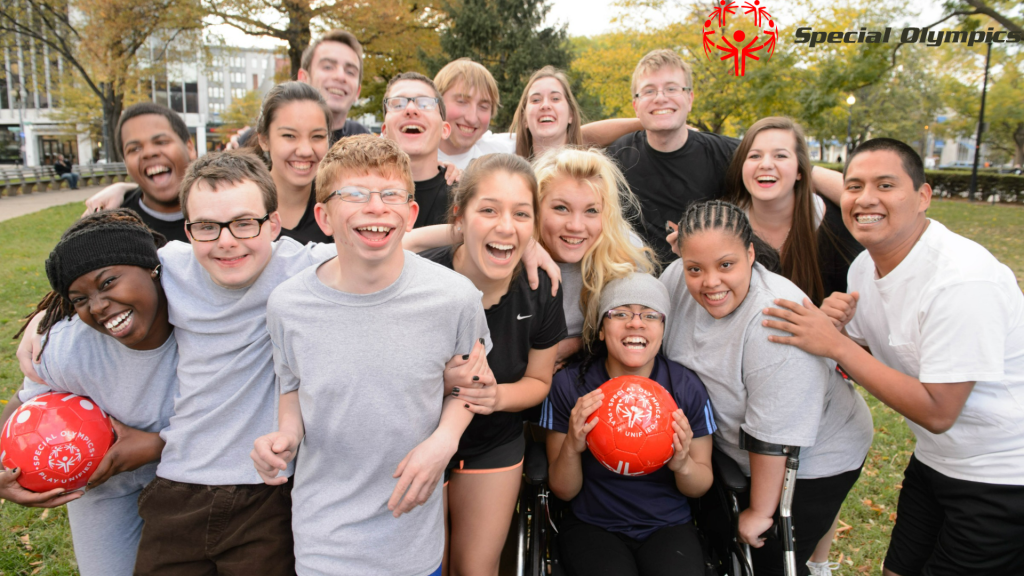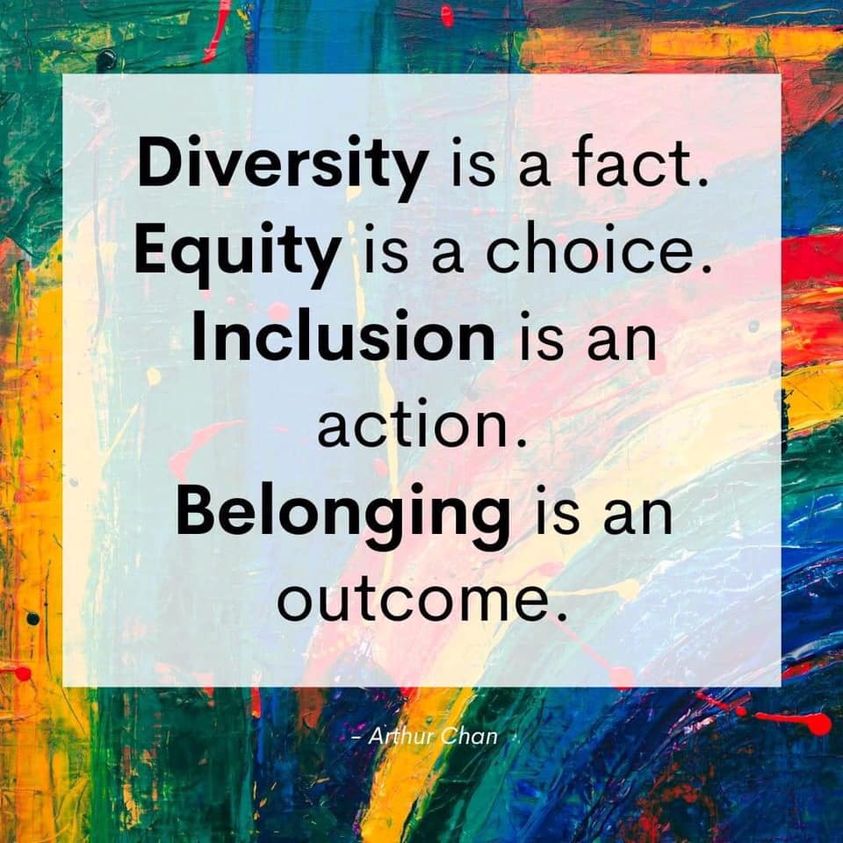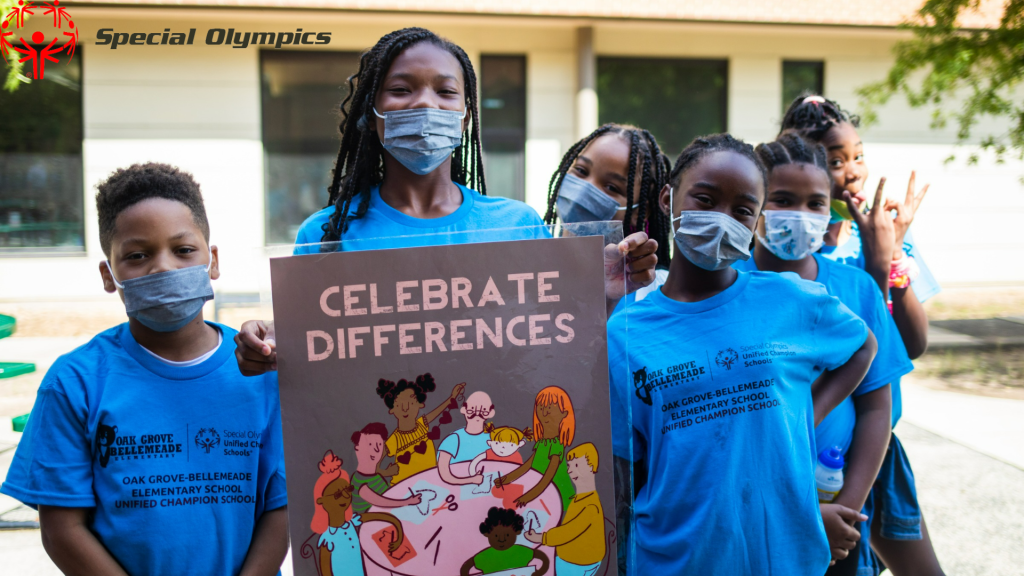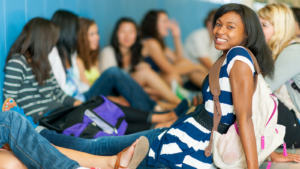Delivered in Unified Champion Schools

The acronym DEI (Diversity. Equity. Inclusion.) has been around long enough that, like LGBT, it has been morphed to reflect additional goals. DEIJ adds justice. Some even reorder the goals to put justice first (JEDI). DEIB adds belonging. At some point, I expect the two additions will be combined to create a new acronym that connects the systemic goal (justice) to the original organizational goals (DEI) to the personal outcome (belonging).
All these goals are under threat. Legislatures are undoing foundational legal protections. School districts are removing equity policies and programs put in place less than a decade ago. Students and teachers are being denied the basic right to bring and see their full selves in school – the place where they are required to show up. The urgency of these daily assaults on identity suggests that focusing on the I to ensure the B may be best way to bend towards justice. Arthur Chan’s popular social media tile explains why.
Belonging – or not belonging—is an outcome we have all experienced. It is an outcome we witness and contribute to daily through our actions to include or inactions or adverse actions to stop the inclusion of others.

Inclusion and belonging have been the goals of the disabilities movement which started in the 1900s. Special Olympics was founded in 1968 to provide a variety of year-round sports training and athletic competitions for children and adults with intellectual disabilities. The Individuals with Disabilities in Education Act (then known as Education for All Handicapped Children Act) passed in 1975. But the disabilities movement gained its broadest public recognition in 1990 with the passing of the Americans with Disabilities Act that prohibits discrimination of people with disabilities in many aspects of public life including, but by no means limited to, public education.
Special Olympics has worked with the USDOE Office of Special Education to create Special Olympics Unified Champion Schools (UCS) which introduces Special Olympic Unified Sports as the foundation for promoting inclusive youth leadership and whole school engagement. I was invited to join the program’s national education leadership group a few years ago to help the UCS team think about how to meet their expansion goal (10,000 schools by 2024) and help them think about how they might contribute to the broader DEIB movement.
My answer was simple: Leverage the fact that, students with disabilities, unlike BIPOC or LGBTQ+ students, may still face misconceptions about their abilities to contribute, but they don’t face fear. Including them doesn’t threaten the identity of others.

Their recent one-minute Inclusion Manifesto video (created for March Inclusion Month) demonstrates this hidden strength. It starts with close-ups on students stating “we are not just athletes… we are ambassadors of an uprising.” The focus is clearly on showing the conviction of abled and disabled students to this cause. But it’s hard to imagine that the students in Unified Champion Schools, having figured out how to create a culture of belonging for students with disabilities, haven’t also laid the groundwork for their demands for “respect, dignity, and recognition of humanity” to be advanced for those students with disabilities who are also Black, Latino, gay, or trans. It’s a risk.
Pointing out these intersectionalities could draw Special Olympics into the fray. Or it could spark pushback from the groups currently under attack who don’t see the parallels. But I think it is a risk worth taking.



No comment yet, add your voice below!